The Integrated appliances They have become an outstanding trend in modern and design kitchens. Its main advantage lies in the combination of functionality, efficiency and style, achieving a harmonious space where appliances They integrate perfectly with the furniture.
The objective of this integration is to complement the design of the kitchen in a aesthetic and functional way, optimizing the space and creating a practical environment for day to day. This solution results especially beneficial in households with limited space, where every centimeter counts to achieve a comfortable and efficient kitchen.
In a kitchen, they can be integrated different types of appliances to the available space depending on your needs. Below we present several types of appliances that usually integrate into modern cuisine fronts.
Refrigerators aligned with the kitchen furniture and integrated in the front, contributing Visual harmony to the environment.
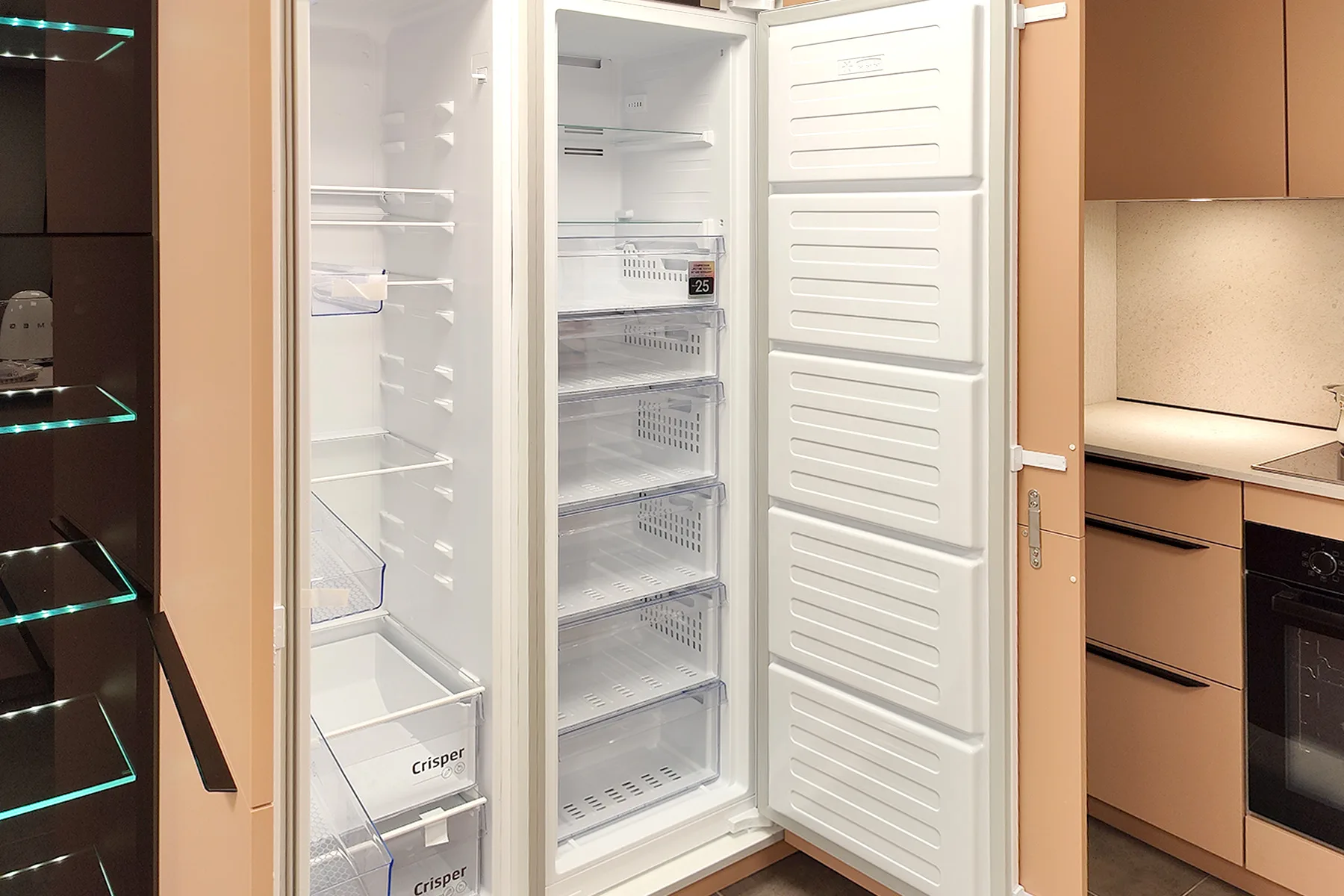
They are installed under the countertop and integrated in the front. They could be modified so that the dishwasher has the same aesthetics as the rest of the kitchen front.
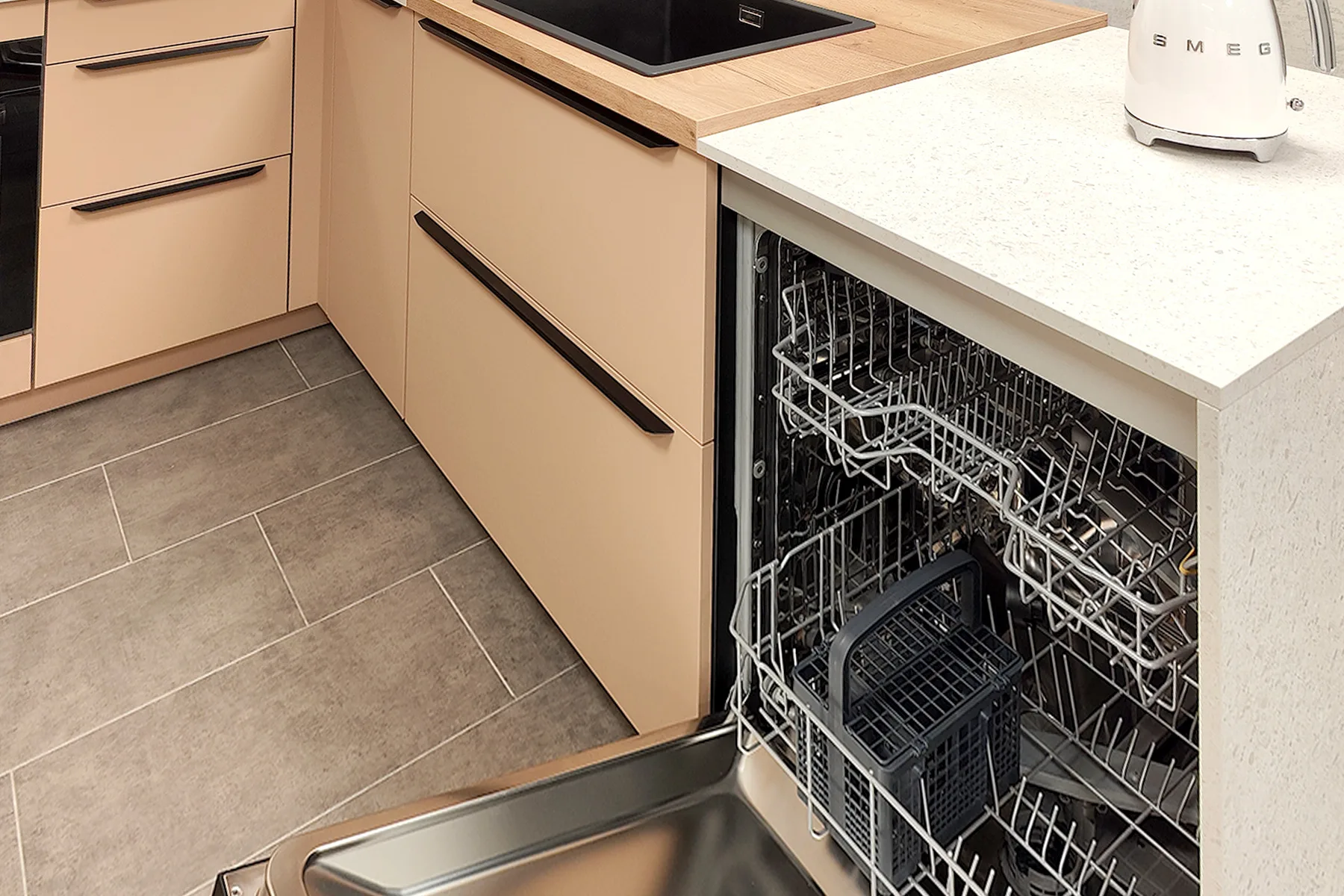
It can be integrated into various places. Above or under the fridge, in the various existing closets, on the sides, under the countertop…
It's a Very versatile appliance which can be integrated almost anywhere in the kitchen.
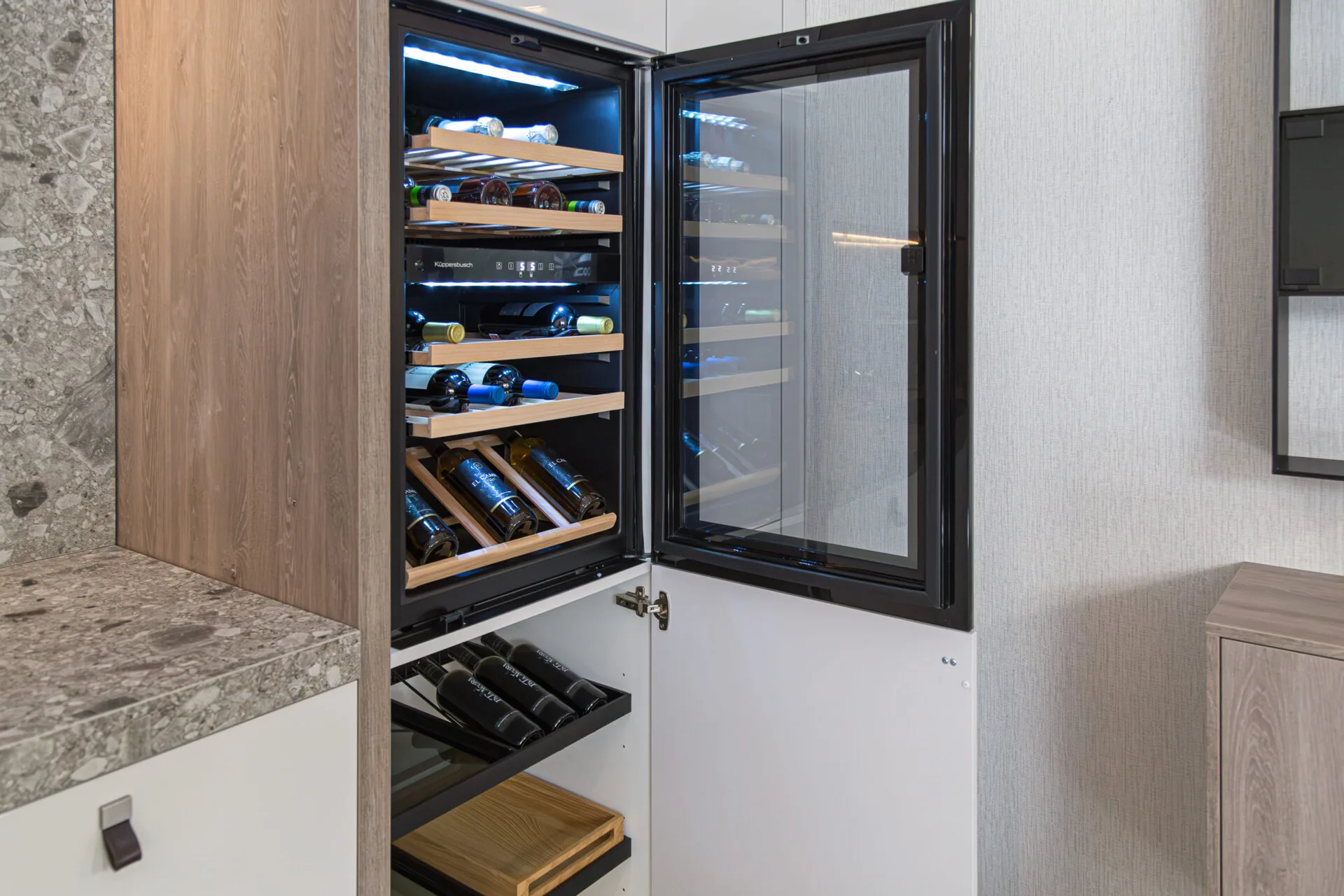
The ovens They are usually installed under the countertop or embedded in cabinets A little below the height of the eyes to facilitate work with these appliances.

The microwave, being a smaller appliance, also can be installed practically anywhere. Normally and like the oven, too It is usually installed at eye level To be able to work comfortably.
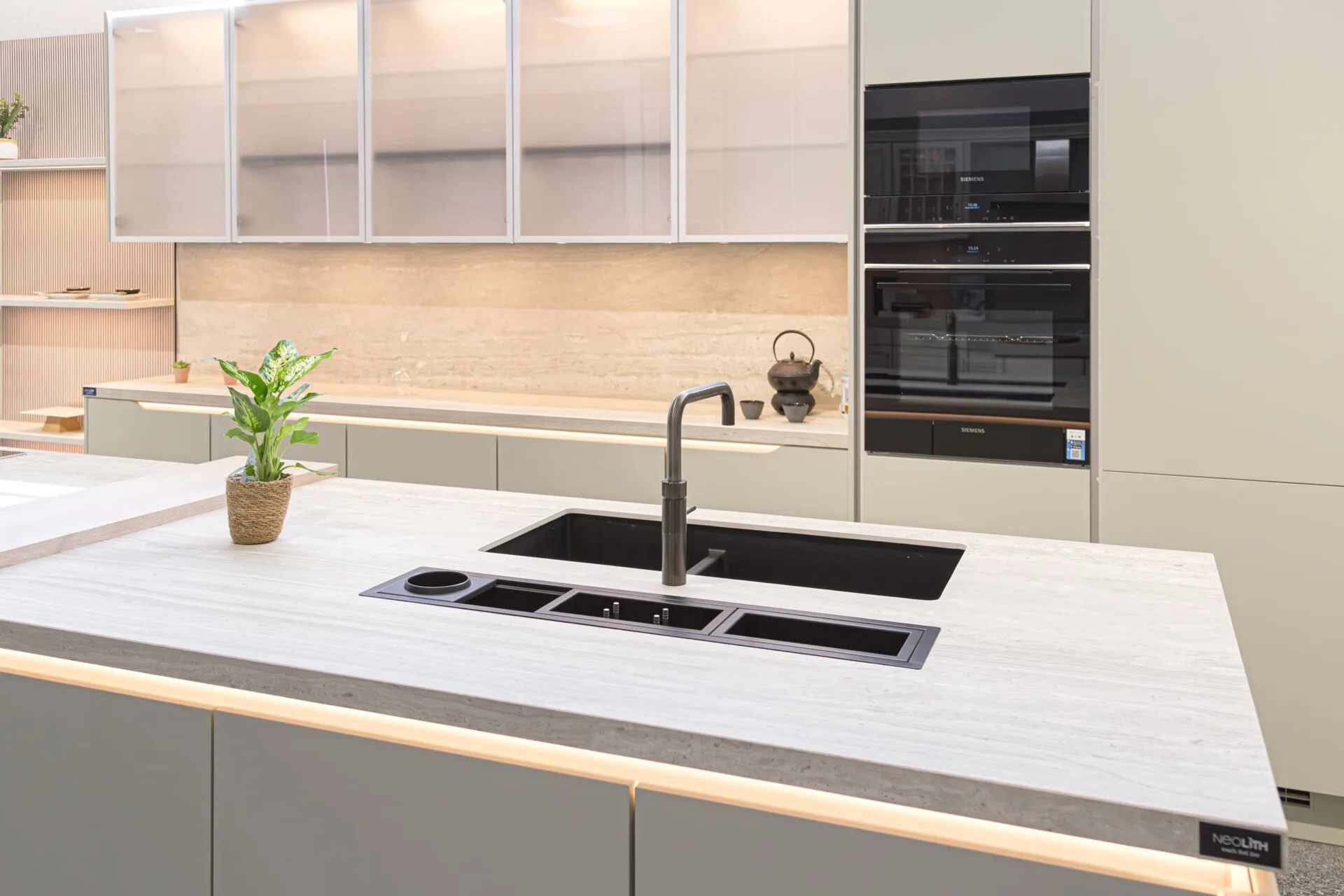
Integrating a washing machine into the kitchen can be a good idea if you do not want to have a laundry area. In this way The space is optimized by incorporating the washing machine under the countertop discreetly.
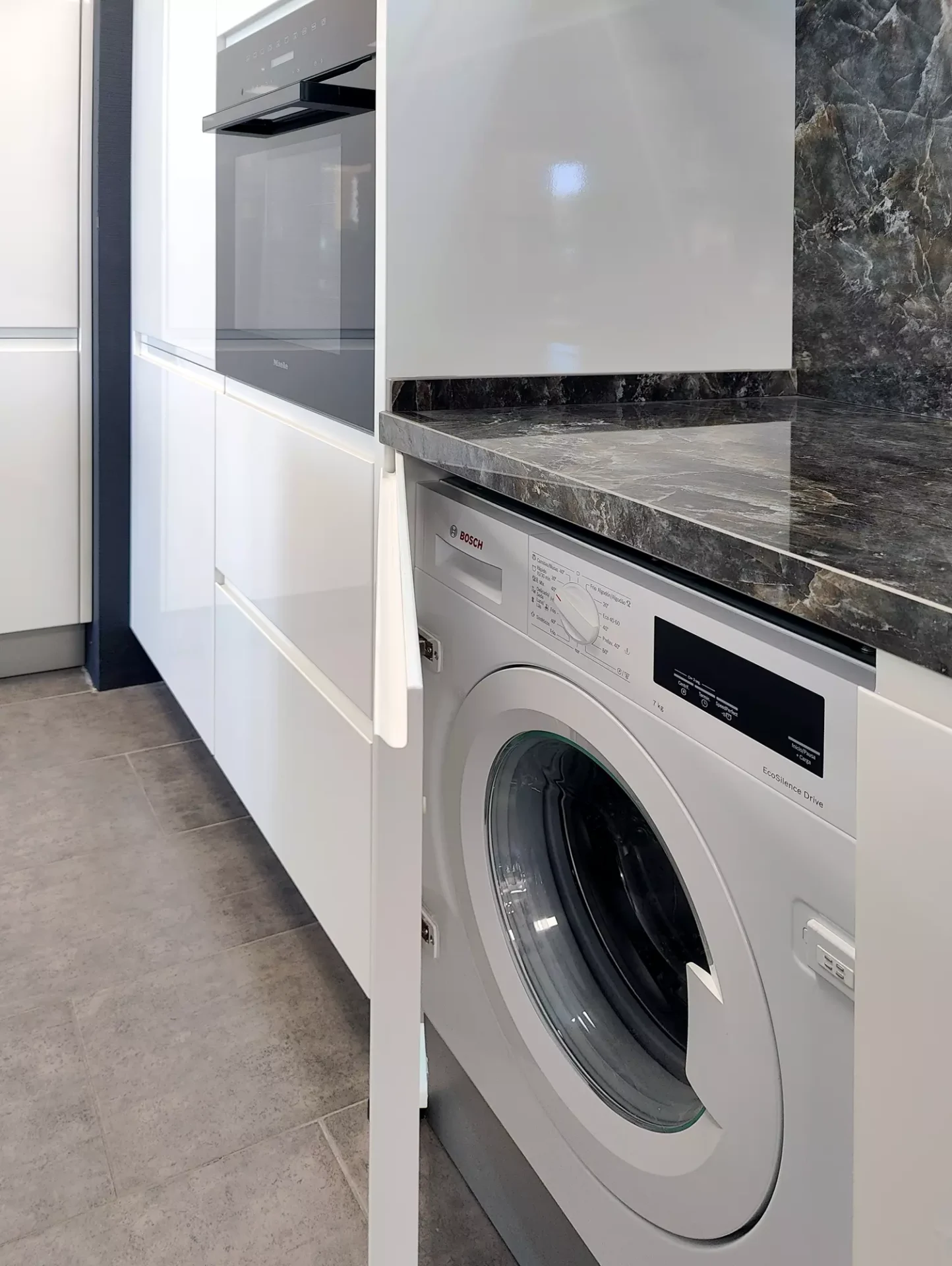
Aesthetics and visual harmony: Being panels or enchanted, appliances are integrated with furniture, achieving a cleaner and more elegant design.
Space optimization: Integration allows every corner to take better advantage, ideal for small kitchens or open concept.
Greater sensation of order: Being hidden or aligned with furniture, the kitchen looks more orderly and sophisticated.
Less accumulation of dirt: There are no holes between appliances and furniture where dust and fat accumulate.
Increased housing value: A kitchen with integrated appliances is usually perceived as more modern and high -end, which can revalue the property.
Greater cost: Integrative appliances are usually more expensive than conventional ones, and custom furniture also increases the budget.
Less flexibility: Changing or updating an appliance can be complicated if the new model does not fit the designed space.
More complex installation: Precise planning is required and in some cases the help of specialized professionals.
Less accessibility for maintenance and repair: If an appliance fails, it can be more difficult to disassemble and repair compared to an independent.
Lower variety of models: Not all appliances have integrable versions, which can limit the choice according to specific needs.